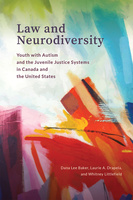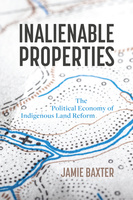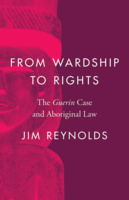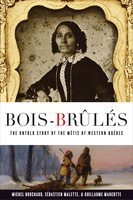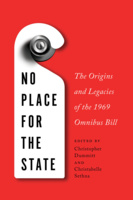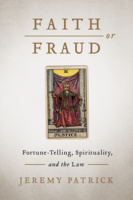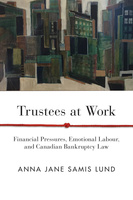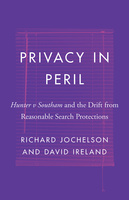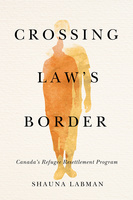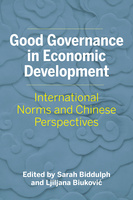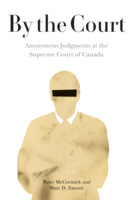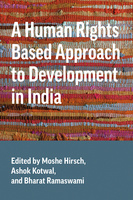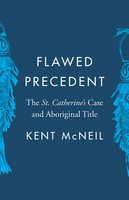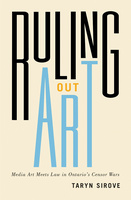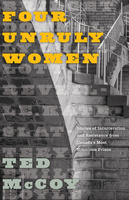Law and Neurodiversity
Youth with Autism and the Juvenile Justice Systems in Canada and the United States
Through a comparison of juvenile justice systems in Canada and the United States, Law and Neurodiversity examines gaps of accommodation and consideration for youth with autism.
Inalienable Properties
The Political Economy of Indigenous Land Reform
Inalienable Properties explores the contrasting approaches taken by local leaders to property rights and development in four Indigenous communities.
From Wardship to Rights
The Guerin Case and Aboriginal Law
This thoughtful and engaging examination of the Guerin case shows how it changed the relationship between governments and Indigenous peoples from one of wardship to one based on legal rights.
Bois-Brûlés
The Untold Story of the Métis of Western Québec
Bois-Brûlés shatters the prevailing orthodoxy that Métis communities are found solely in western Canada by demonstrating that a distinct community emerged in the fur trade frontier of Quebec in the early nineteenth century and persists to this day.
No Place for the State
The Origins and Legacies of the 1969 Omnibus Bill
No Place for the State is an incisive study that offers complex and often contrasting perspectives on the Trudeau government’s 1969 Omnibus Bill and its impact on sexual and moral politics in Canada.
Faith or Fraud
Fortune-Telling, Spirituality, and the Law
Faith or Fraud: Fortune-Telling, Individual Spirituality, and the Law answers an emerging controversy: Should the law’s understanding of religion include the “spiritual but not religious”?
Refugee Law after 9/11
Sanctuary and Security in Canada and the United States
The first major study to compare changes made to Canadian and US refugee law after and because of 9/11, Refugee Law after 9/11 uncovers crucial connections among refugee law, security relativism, and national self-image.
Trustees at Work
Financial Pressures, Emotional Labour, and Canadian Bankruptcy Law
Trustees at Work explores what is means to be considered a deserving debtor in under contemporary Canadian personal bankruptcy law.
Privacy in Peril
Hunter v Southam and the Drift from Reasonable Search Protections
This book, the second in the Landmark Cases in Canadian Law series, argues that in subsequent, post-Hunter v Southam decisions, the Supreme Court of Canada has strayed from the principles set out in that case, which were intended to protect the privacy of citizens from encroaching state power.
Governing the Social in Neoliberal Times
This accessible but theoretically sophisticated volume reveals how neoliberalism – as both an economic project and a broader political approach – has come to govern our daily lives, our understanding of the world we live in, and even how we think about ourselves.
Crossing Law’s Border
Canada’s Refugee Resettlement Program
Crossing Law’s Border offers a comprehensive account of Canada’s refugee resettlement program, from the Indochinese crisis of the 1970s to the current era of controversy and flux in refugee and asylum policy.
Good Governance in Economic Development
International Norms and Chinese Perspectives
Good Governance in Economic Development examines what happens at the intersection of international and Chinese conceptions of transparency, accountability, and public participation.
By the Court
Anonymous Judgments at the Supreme Court of Canada
By the Court is the first major study of unanimous and anonymous legal decisions: the unique “By the Court” format used by the Supreme Court of Canada.
A Human Rights Based Approach to Development in India
This book demonstrates why economic development is synonymous with institutional development for the furthering of human development issues.
Flawed Precedent
The St. Catherine’s Case and Aboriginal Title
This illuminating account of the St. Catherine’s case of the 1880s reveals the erroneous assumptions and racism inherent in judgments that would define the nature and character of Aboriginal title in Canadian law and policy for almost a century.
Ruling Out Art
Media Art Meets Law in Ontario’s Censor Wars
This fascinating account of Ontario’s 1980s’ censor wars shows that when art intersects with law, artists have the power to transform the law, and the law, in turn, can influence the concept of art.
Métis Politics and Governance in Canada
This timely book offers a novel, practical guide for understanding who the Métis are and the challenges they face on the path to self-government.
Seeking the Court’s Advice
The Politics of the Canadian Reference Power
The first comprehensive analysis of the Canadian reference power, Seeking the Court’s Advice examines how policy makers use the courts strategically to achieve political ends.
Four Unruly Women
Stories of Incarceration and Resistance from Canada’s Most Notorious Prison
Filled with stories of pain, regret, and resistance, this chilling account of how four women survived their time at Kingston Penitentiary stands as an indictment of the idea that prisons and punishment are society’s answer to crime.
Resisting Rights
Canada and the International Bill of Rights, 1947–76
Resisting Rights challenges the myths that Canada has always been at the forefront in the development of international human rights law and led the cause at the United Nations.

